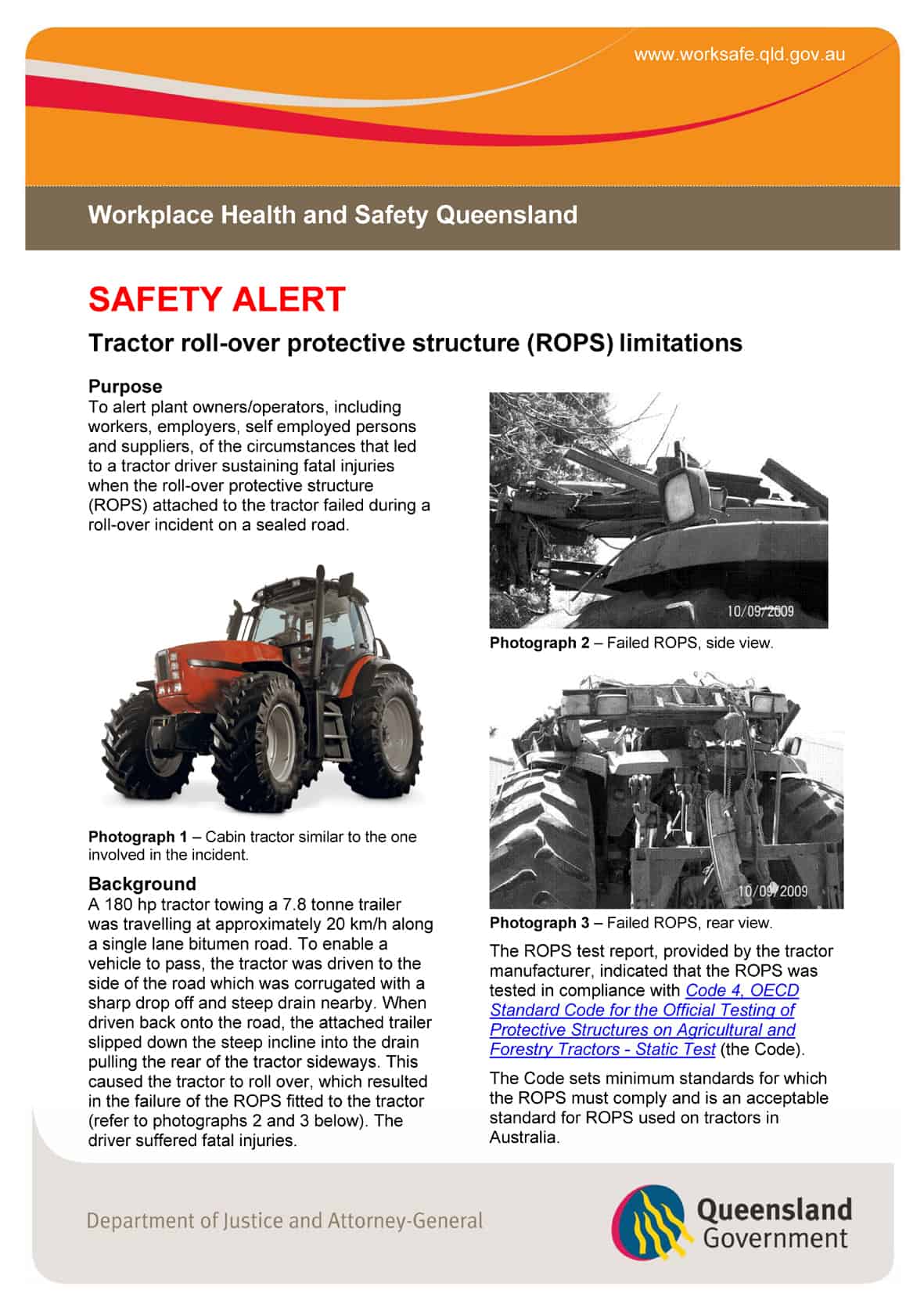Roll Over Protective Structures (ROPS) are a standard safety design feature on many items of agricultural equipment from tractors to quad bikes. But ROPS do not prevent a rollover, only minimise the risk of injury from a rollover.
 The Workplace Health and Safety Queensland has issued a safety alert over a tractor ROPS that failed. The background for the safety alert is:
The Workplace Health and Safety Queensland has issued a safety alert over a tractor ROPS that failed. The background for the safety alert is:
“A 180 hp tractor towing a 7.8 tonne trailer was travelling at approximately 20 km/h along a single lane bitumen road. To enable a vehicle to pass, the tractor was driven to the side of the road which was corrugated with a sharp drop off and steep drain nearby. When driven back onto the road, the attached trailer slipped down the steep incline into the drain pulling the rear of the tractor sideways. This caused the tractor to roll over, which resulted in the failure of the ROPS fitted to the tractor. The driver suffered fatal injuries.”
